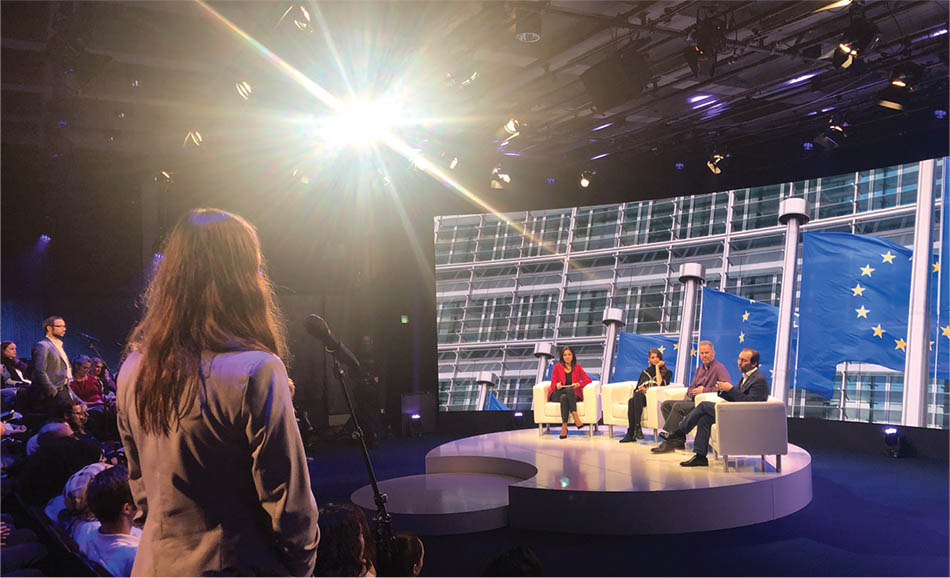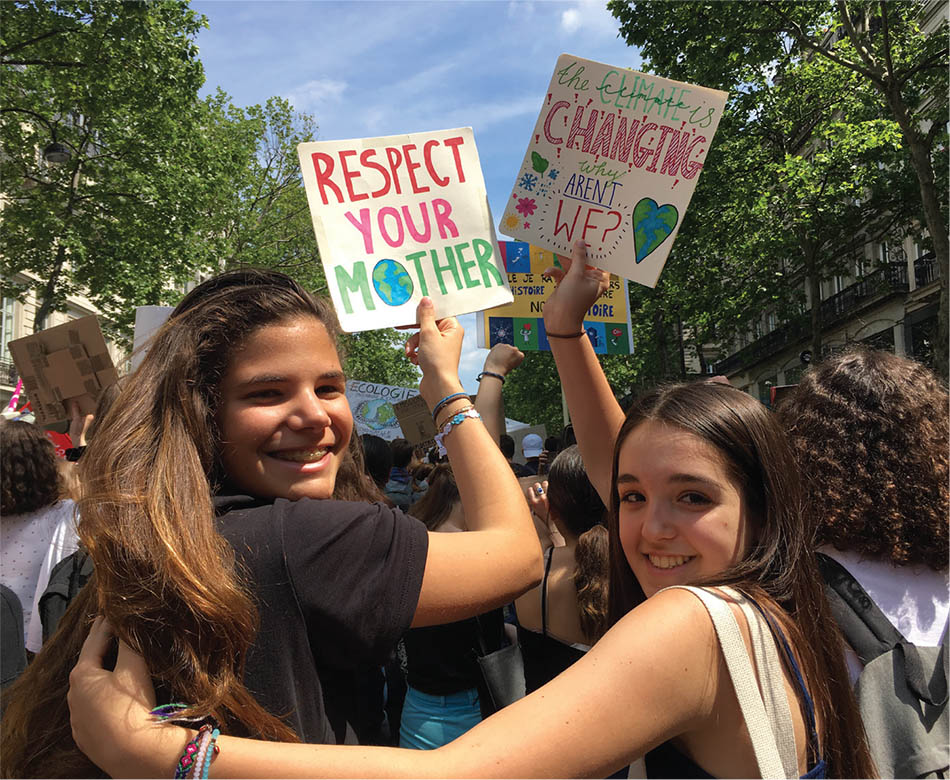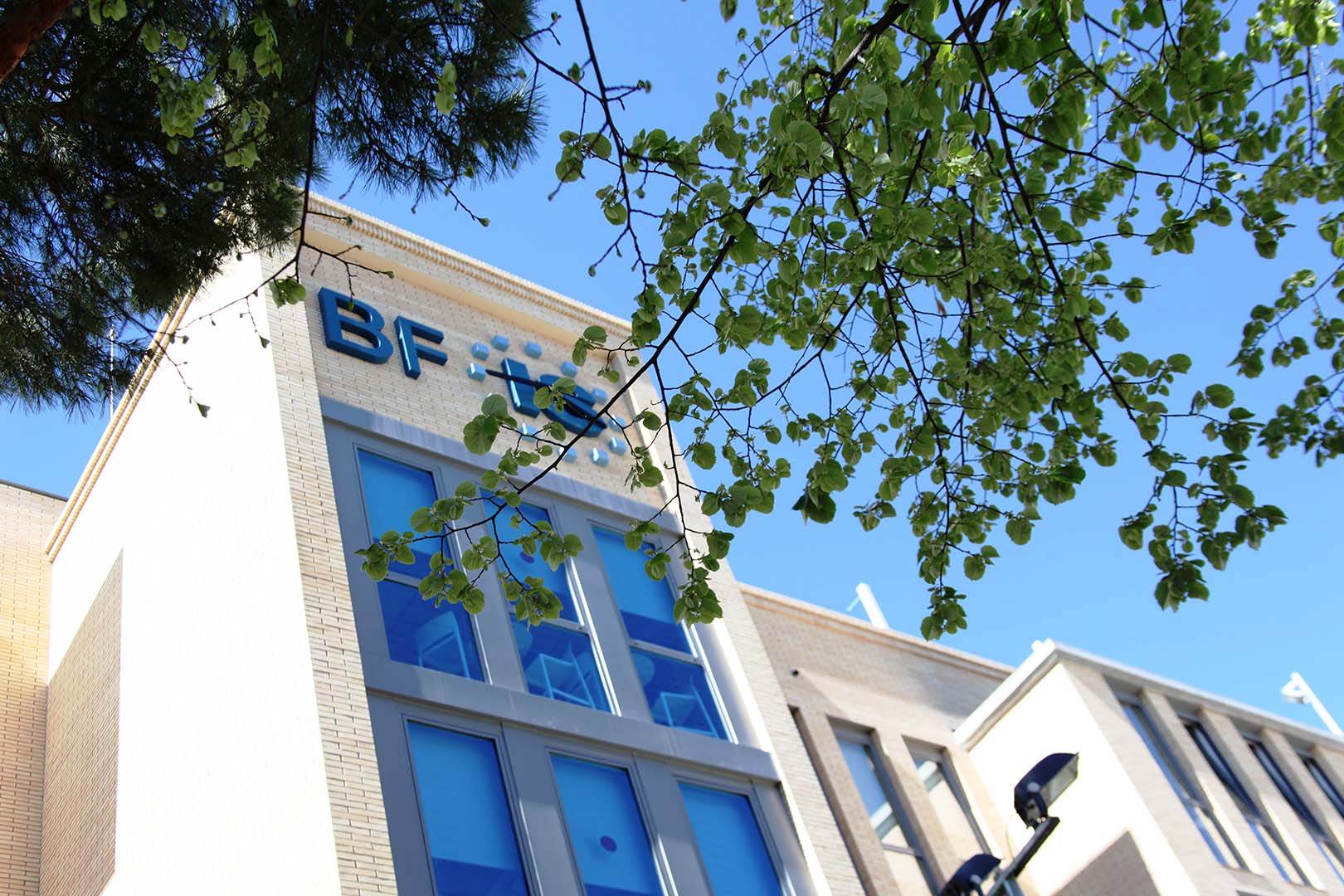Global citizenship at the International School of Paris
Text: Kate Harvey | Photos: The International School of Paris

In 2020, we know that a global mindset is necessary for success in an interconnected and changing world. In 2018, the OECD defined global competence as the “ability to critically examine issues, understand multiple perspectives, and take responsible action towards sustainability and collective wellbeing”. At the International School of Paris (ISP), fostering this competence is a common thread that unifies the school’s values. Their robust International Baccalaureate programme, and students’ unique access to the city of Paris, are key to developing global citizenship.
The International Baccalaureate, or IB, is the curriculum of choice at ISP. Since the 1960s, the IB has developed an international curriculum framework in order to “create a better and more peaceful world through intercultural understanding and respect”. ISP implements the three main IB programmes, for children aged three to 18. The IB curriculum framework represents a departure from its national counterparts: critical thinking, research, self-management, communication and social skills make up the core areas of student development. It is these approaches to learning, rather than national histories, literature, cultures, or ways of thinking, that guide pedagogical planning. Teachers give feedback on both students’ understanding of subject-area content and, for example, their ability to collaborate with classmates or voice an opinion in a respectful manner. The approaches to learning and feedback from educators offer students a clear foundation for understanding what it means to be a global citizen in 2020.

Three Campuses in the heart of Paris: creating opportunities to think locally, act globally
At ISP, an international curriculum is only the first step to fostering global competence. They strongly believe that experiential learning, particularly through service to others, is the most meaningful way for students to exercise their responsibilities as engaged citizens. Students are encouraged to face global societal challenges in Paris, first and foremost. ISP students volunteer to help refugees. And, during the Paris Peace Forum last November, some pupils participated in a debate on whether or not we should trust traditional governments.
Helping members of the ISP community is encouraged through student-led service projects. Recent projects include implementing a campus recycling programme and measuring its effectiveness, volunteering at senior homes, or partnering with other schools to provide academic tutoring and share teaching best practice. ISP favours projects that include planning, action and reflection stages. These offer more possibilities to gain leadership experience.
Leadership: learned or innate?
At ISP, forming leaders is, above all, a community effort. ISP continues to build on a community-wide discussion which aims to help students hone their leadership skills. One grade-nine student advocated for “exploring levels of leadership and learning to navigate through other peoples’ attitudes”. A grade-11 student hoped to better promote “diverse leadership”. These students are global citizens, who, through their contributions, demonstrated a willingness to understand multiple perspectives. They also gave the community a common goal: diversity in leadership. This goal will further focus ISP’s leadership learning and teaching initiatives.

Spotlight on ISP -Founded in 1964; over 30 years’ experience delivering the International Baccalaureate programme. -Remains a non-profit, independent school governed wholly by the parents of its students and co-opted experts. -Accredited by the Council of International Schools, the New England Association of Schools and Colleges, and the International Baccalaureate Organisation. -750 students across three unique campuses (primary, middle, high school) in the 16th arrondissement of Paris. Spotlight on Digital Citizenship Online global competence is important at ISP, which is why the school collaborates with a children’s rights lawyer to learn about smartphone addiction, online dangers and using technology for productivity and positive change. After a primary school workshop, a grade-three student said: “I make sure the games I’m playing are appropriate”. The school’s IT guardians also ensure that students know how to safely and responsibly use the IT available to them. They communicate tips and tricks, remind students to log out of their accounts on shared machines, and make repairs to IT equipment. Students are responsible for their own online safety and presence, and teach others to be responsible. Visit www.isparis.edu or follow them on Twitter (@isparisedu) to learn more about ISP or to participate in conversations about global competency, service learning or leadership. www.ibo.org
Subscribe to Our Newsletter
Receive our monthly newsletter by email





